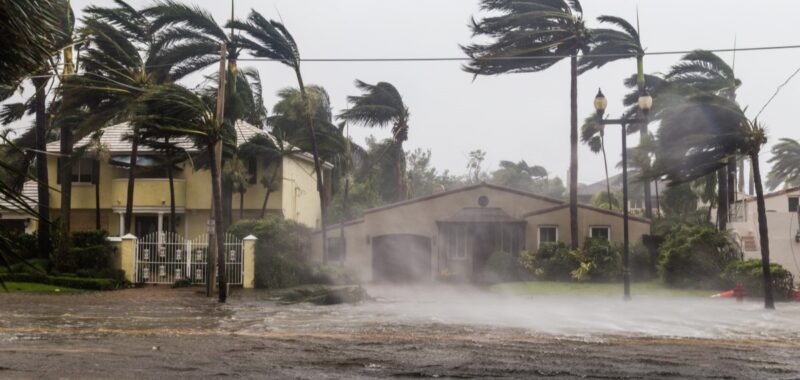The Federal Housing Administration (FHA) on Tuesday issued an informational notice to mortgage lenders in which it reiterates various loss-mitigation options afforded to companies and borrowers who are engaged in FHA lending programs in presidentially declared major disaster areas (PDMDAs).
The guidance applies to origination and servicing for both traditional forward mortgages as well as Home Equity Conversion Mortgages (HECMs) for senior borrowers, the agency said.
“In the wake of the devastation caused by Hurricane Helene, the [FHA] reminds mortgagees about its guidance for originating and/or servicing FHA-insured forward mortgages and [HECMs] in locations in the U.S. and its territories where the president has declared a major disaster under the Stafford Act,“ FHA said in its notice.
“This declaration is made when natural disasters or other events are of such severity that it is beyond the combined capabilities of state and local governments to respond.”
The notice lists relevant guidance found in FHA’s Single-Family Housing 4000.1 handbook, including inspection and repair escrow environments for loans that have yet to close. It also applies to endorsement, loan servicing and loss-mitigation efforts.
Properties in PDMDAs which have pending loans or endorsements, and which have been designated for individual assistance, must have “a damage inspection report that identifies and quantifies any dwelling damage.” The inspection must be conducted by an FHA-approved appraiser, even if there is no damage listed in the report, which must be dated after the incident date or 14 days from it, whichever is sooner.
“If the effective date of the appraisal is on or after the date required above for an inspection, a separate damage inspection report is not necessary,” FHA explained. “All damages, regardless of amount, must be repaired by licensed contractors or per local jurisdictional requirements, and the property must be restored to pre-loss condition with appropriate and applicable documentation.”
In terms of loan servicing and loss mitigation, FHA states that borrowers in PDMDAs might be able to qualify for either “formal” or “informal” forbearance assistance. Informal forbearance is dependent on the length of a given foreclosure moratorium in the PDMDA, while formal forbearance can be considered “for borrowers in PDMDAs while they are pursuing home repairs and/or resolving verifiable financial difficulties related to the disaster.”
But for those seeking formal forbearance during repairs, the forbearance period will not exceed “the estimated time needed to complete the home repairs,” and the total accumulated mortgage arrearages during the forbearance period cannot exceed “the equivalent of 12 months of principal, interest, taxes, and insurance (PITI).”
All FHA-sponsored forward mortgages inside PDMDAs have an automatic 90-day forbearance period following a declaration by the president.
For HECM borrowers, loans that become due and payable “for reasons other than the death of the last surviving borrower and eligible non-borrowing spouse are subject to a 90-day extension of HECM foreclosure timelines,” according to FHA. Inside PDMDAs, the agency also provides an automatic 90-day extension from the date the PDMDA foreclosure extension expires to “commence or recommence a foreclosure action.”
According to reporting published Tuesday by the The Washington Post, Helene’s estimated death toll currently sits at 125 across the southern U.S. That makes it one of the deadliest hurricanes to hit the country so far in the 21st century.
More than 1.5 million people were without power as of Tuesday morning across Florida, Georgia, North Carolina, South Carolina and Virginia, according to the report. State officials have estimated that the full toll of damage will be severe, while the impacts to real estate across the region are expected to be equally so.

